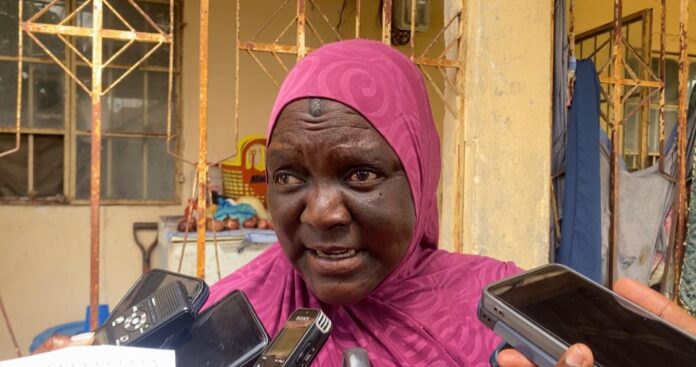By Alieu Jallow
As the rains begin in the Greater Banjul Area, flooding fears grip communities along the Kotu stream, and for Dippa Kunda’s Kaddy Kaloga, it’s a familiar dread she’s lived with for years.
“We’re grateful to the Almighty Allah during the dry season, but once the rains begin, our peace of mind disappears. When it rains, our houses flood. You can’t even tell the difference between the inside and outside; it’s all waterlogged. Our food is washed away, and even the clothes I’ve dyed are ruined. We have nowhere to go,” she said.
Kaloga is one of many residents who face repeated flooding each year, largely driven by blocked waterways and poorly maintained drainage systems. She pointed to the growing issue of indiscriminate waste dumping, which clogs natural channels and worsens flooding during downpours.
“The stream used to be clean. We used to bathe in it, wash our utensils, it flowed normally, but today, the dumping of waste has blocked it, and now it’s causing havoc,” she explained
While relocation may seem like a practical solution to some, for Kaloga and others, it’s not that simple. This place, she says, is home.
“All we need is support to improve our living conditions. Relocation is not an option. This is our home, where we raised our families here. And for us Serahules, being separated from family means being forgotten,” she said.
The dire situation has not gone unnoticed. The West. Africa Coastal Areas Resilience Investment Project 2 (WACA ResIP2) is currently conducting feasibility studies aimed at strengthening the resilience of vulnerable communities, such as Kotu. Backed by international partners, the WACA program was launched to address coastal erosion and flooding by protecting the ecological and economic assets of West Africa’s coastal areas.
Abdoulie Sey, Communication Officer for the WACA project, acknowledged the challenges but stressed that any interventions must be grounded in research and evidence.
“From our end, it’s too soon to speak definitively about relocation or compensation,” Sey said. “These are sensitive issues that must be based on scientific studies. The feasibility study will guide our work when scientists come, they’ll assess whether the stream can be restored and what realistic options exist for residents.”
As the studies near completion, residents like Kaloga remain in limbo, caught between the fear of yet another devastating rainy season and the uncertainty of what lies ahead.
For now, her message remains clear: “We need support not just to survive the rains, but to live in dignity.”




